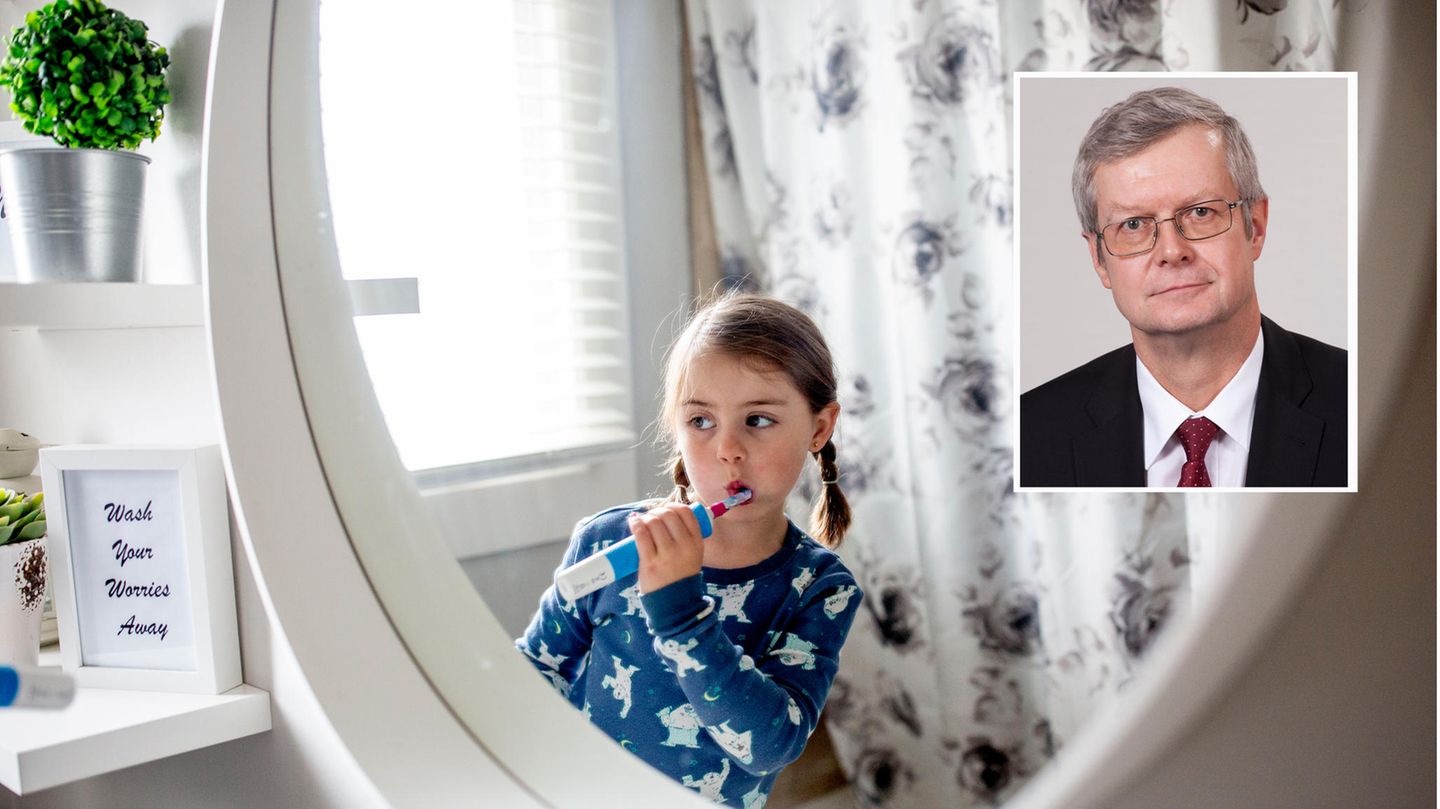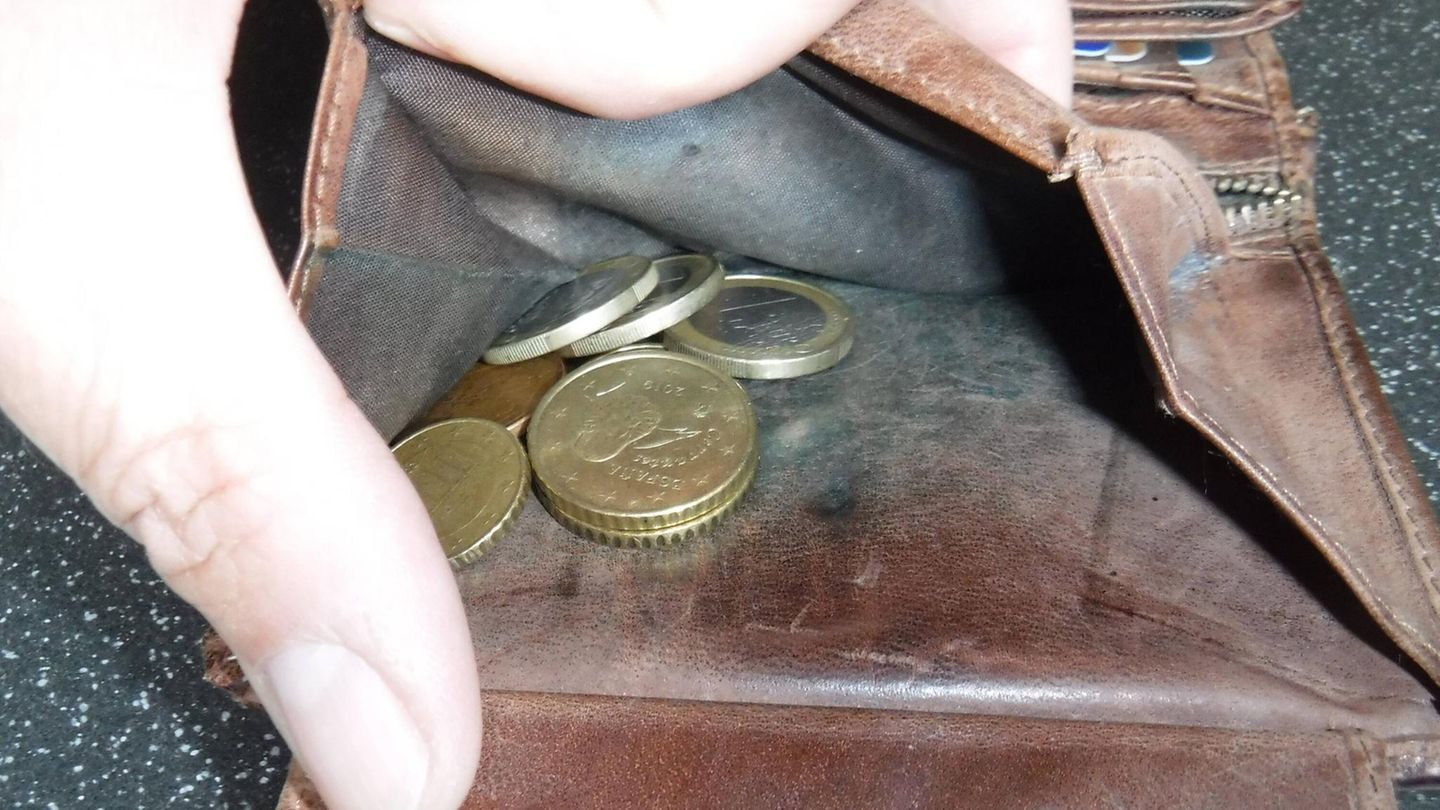Dental care
Electric toothbrushes: “Children first need to get a feel for what’s going on in their mouths”
Copy the current link
More and more parents are giving their children electric toothbrushes. Dr. explains how useful this is and why you should still brush consistently. Thomas Breyer.
They have a reputation for caring for our teeth more thoroughly than is possible with an ordinary manual toothbrush. The whirring and vibrating brushes with replaceable heads have been spreading in German bathrooms for more than three decades. More and more children are swapping their “normal” toothbrush for a Bluetooth-enabled electric counterpart. But how sensible and healthy is it to give electric toothbrushes to toddlers at daycare age? Dr. Thomas Breyer, practicing dentist and President of the Saxony State Dental Association, emphasizes in an interview with starthat parents play the most important role in their children’s first years of cleaning. Colorful ones also change that and fun smartphone apps nothing.
Mr. Dr. Breyer, there is at least one electric toothbrush in almost every German bathroom. Many smaller children now also clean electrically. What do you think about it in general?
Unfortunately, today’s children’s motor skills tend to regress rather than advance. Our basic tenet is that they brush with a manual toothbrush in the first few years of life in order to get a feel for what is actually happening in their mouth. With four-year-olds or even younger children, there is a risk that they will put the toothbrush in their mouth and primarily find it funny and the device will hum a little. The children quickly start dreaming, playing in front of themselves and the cleaning effect is almost zero. According to the motto: once in on the left, once in on the right, done. To make matters worse, many parents also believe that the electric toothbrush will clean their teeth and that they no longer have anything to do with the matter.
At what age are children able to brush their teeth alone and consistently?
Children are not able to brush all of their teeth properly until they are around six years old. No matter which toothbrush. Until then, the parents have to clean up. Of course, this also works with electric toothbrushes. However, we think it makes sense to let children brush with a manual toothbrush until their motor skills are sufficient to reach every part of their mouth. From what we know, this is between the ages of five and seven. You can then switch to an electric toothbrush.
That’s the theory. What are your practical experiences from everyday life?
The reality of children’s lives is actually different. Parents often brush with an electric toothbrush. This leads the children to ask themselves why this should be right for adults – but not for them. In our opinion, a compromise must be found in the family here. Whether it’s a sonic toothbrush or one with an oscillating head doesn’t really matter if you choose the electric version. They hardly differ in their cleaning effect. In our experience, sonic toothbrushes are a little ahead. Here the fluoride is better distributed between the teeth. However, the models with oscillating heads are less abrasive. But the most important thing is as I said: keep cleaning until the age of six.
What is the most important tip you give parents when it comes to brushing their children’s teeth?
The belief that the electric toothbrush relieves you of the need to check and re-brush should quickly get out of parents’ minds. We observe that it is easier to dream with an electric brush than with a manual toothbrush. If you dream while brushing with a manual toothbrush, it simply stops. The electric one continues to wobble even when the child picks his nose. That’s why checking and cleaning are so important.
Brushing children’s teeth: The seven most important rules
- Regular brushing from the first tooth onwards
- Use toothpaste containing fluoride
- Supervise children when cleaning
- Recommendation: manual toothbrush up to the age of five
- Cleaning time is at least two minutes
- Consistent cleaning by parents (up to the age of six)
- Six-monthly check-up at the dentist (coloring the coverings)
Even children’s versions of electric toothbrushes monitor the pressure when brushing. How useful is this function from your point of view?
The pressure control makes sense. However, more for adults, because many people brush the necks of their teeth when cleaning their teeth. The electric brush has a real advantage over the mechanical one. There is a risk of ruining your teeth with manual toothbrushes, especially after stressful days. This prevents pressure control with electric toothbrushes. Parents don’t have to worry because children usually lack the strength to exert too much pressure.
* There is more information about this .
Source: Stern
I’m Caroline, a journalist and author for 24 Hours Worlds. I specialize in health-related news and stories, bringing real-world impact to readers across the globe. With my experience in journalism and writing in both print and online formats, I strive to provide reliable information that resonates with audiences from all walks of life.




